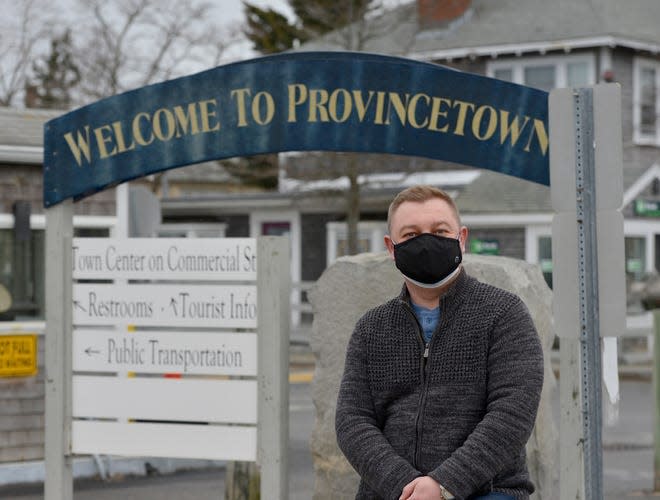Exorbitant housing costs deter Cape business owners from finding enough help
Eddie Foisey moved to Cape Cod in the 1980s.
“I remember Cape Cod, you know, last guy over the bridge, shut off the light,” he said.
But a lot has changed in 40 years — as Foisey would say, “the place has grown up.”
The place has grown up, grown out, but most of all, it has grown expensive. The average home price on the Cape, according to Zillow, is more than $600,000.
Foisey says he couldn’t afford a place today.
“I mean, I’m just a working guy, you know?”
Foisey isn’t the only working guy who owns a house on the Cape. Brian Zinn works for a school and his wife, Denise, is a nurse. They bought a house in Brewster in 1997, finding it “by dumb luck,” she says, aided by their timely arrival.
He agrees, “it was just all serendipity.”
Twenty-four years later, the couple have moved, but lease the house to long-term renters. Zinn says it’s not just one thing that has caused this crisis.
“It’s been a long time coming, it’s not just this crazy real estate boom causing all these issues — it’s been a long time coming,” he said.
A long time coming in this case means decades. And when good-paying jobs don’t pay enough for home ownership, what happens next? Denise Zinn described the difficulty in hiring new health care workers.
“As a new young resident they couldn’t afford to live there,” she said.
She also brought up a question that’s tough for New Englanders to ask themselves: At what point do I leave for someplace more affordable?
“Seriously, I guess I never loved living there, so I was always confused as to why people stayed.”
Denise Zinn joked that people would say they can’t be land-locked, “and then they’d work three jobs and never get to see the beach.” The Zinns now own a home in Pittsburgh, a two-bedroom condo recently purchased for $51,500.
Health care isn’t the only industry feeling the pinch on the Cape.
Rich Delaney, who recently returned from the United Nations COP26 summit on climate change in Glasgow, is stepping down as CEO of the Center for Coastal Studies on Cape Cod. He's an expert on the ocean and climate change. He noted how everything is linked.

“Housing and climate? They have to be in-sync," Delaney said. "For a while you could justify it — we live in this special unique wonderful place and there’s all kinds of amenities for beaches and history and wonderful culture, but there’s a limit to how much that’s worth.”
He feels that challenge in looking at the next steps for his research institution.
“(It's) One of the big issues for the Center for Coastal Studies growth, because we want to have more grad students," Delaney said. "Housing in Provincetown and the lower Cape has been a huge problem for us, and it stopped the growth of the center in that regard.”
Delaney’s staff of about 45 employees could handle more grad students and interns, but the center doesn’t have a real program because “in order to have a formalized program where we bring grad students in any large number down here, we need to have housing.”
It’s not just nonprofits that are suffering. State Rep. Sarah Peake, D-Provincetown, recalled that when state Housing and Economic Development Secretary Mike Kenneally visited businesses on the Cape earlier in the fall, he heard one thing, loud and clear.
“Business owner after business owner, whether it was a small restaurant owner or someone who owned a major appliance store in Harwich: We cannot find employees because people cannot afford to live here,” she said.

Radu Luca, executive director of the Provincetown Chamber of Commerce, said a significant chunk of the region's labor force is comprised of young people from Jamaica and Eastern Europe, who get a J-1 visa to work in the service industry.
But there’s a catch.
“There’s also a requirement with the J-1 Student Visa Program that employees have secured housing before they get here,” he said.
Outside investors
Jay Coburn, CEO of the Community Development Partnership, said a few reasons why the Cape is uniquely expensive includes people — wealthy buyers from Boston and New York who can invest more than locals, as well as current homeowners who don’t support development.
“There’s great, broad consensus to support affordable housing. Until it has an address,” he said.
Other obstacles include restrictive zoning and lack of land.
“Density is the only economically viable way to build housing," Coburn said. "It’s also the most environmentally sensitive way."
If density is the answer, where is the money to build these projects?
“We have ARPA funds that are primed for one-time cost, so think capital projects like housing,” said Peake.
Massachusetts legislators dedicated $530 million of approved a $4 billion American Rescue Plan Act bill to housing.
Beyond money, Peake said, “we also need to bring stakeholders together. Realtors, housing assistance corp., the Community Development Partnership, work with local planning boards to get plans approved…”
This sort of engagement seems to be working. The Community Development Partnership reported that every town on the Lower Cape has a development project in the pipeline. But some businesses can’t wait — they need housing for their staff now.
Someone is trying to make it happen.
Patrick Patrick is eighth generation Provincetown whose parents started Marine Specialties on Commercial Street, an Army Navy store that celebrated 60 years of business in 2021.
Through the first 11 months of last year, the median price for a single-family home sold in Provincetown was $1.46 million, according to The Warren Group.
According to Patrick, “The writing was certainly on the wall by 2019.”
That year he had employees who couldn’t find anywhere to live, so Patrick put them up in his parent’s house. He said this was crowded and “not an ideal solution.”
That’s when Patrick, a seasoned real estate developer, started working on what he views as that solution: 28 dormitory rooms for up to 112 seasonal summer workers. In the off-season, these rooms would be occupied by students.
The project, now named “The Barracks,” received all the necessary approvals and permits, has the support of the town, and even has some businesses interested.
It also generated a lawsuit from abutters.
On July 12, they filed an appeal to annul a planning board decision for a special permit. The project is being held up, but Patrick is optimistic about the Barracks, and Provincetown. His message to the abutters?
“I think I’m doing my part to support the community so I think they can, maybe they can do their part, too.”
This article originally appeared on MetroWest Daily News: Cape Cod business owners must combat high housing costs to get workers
